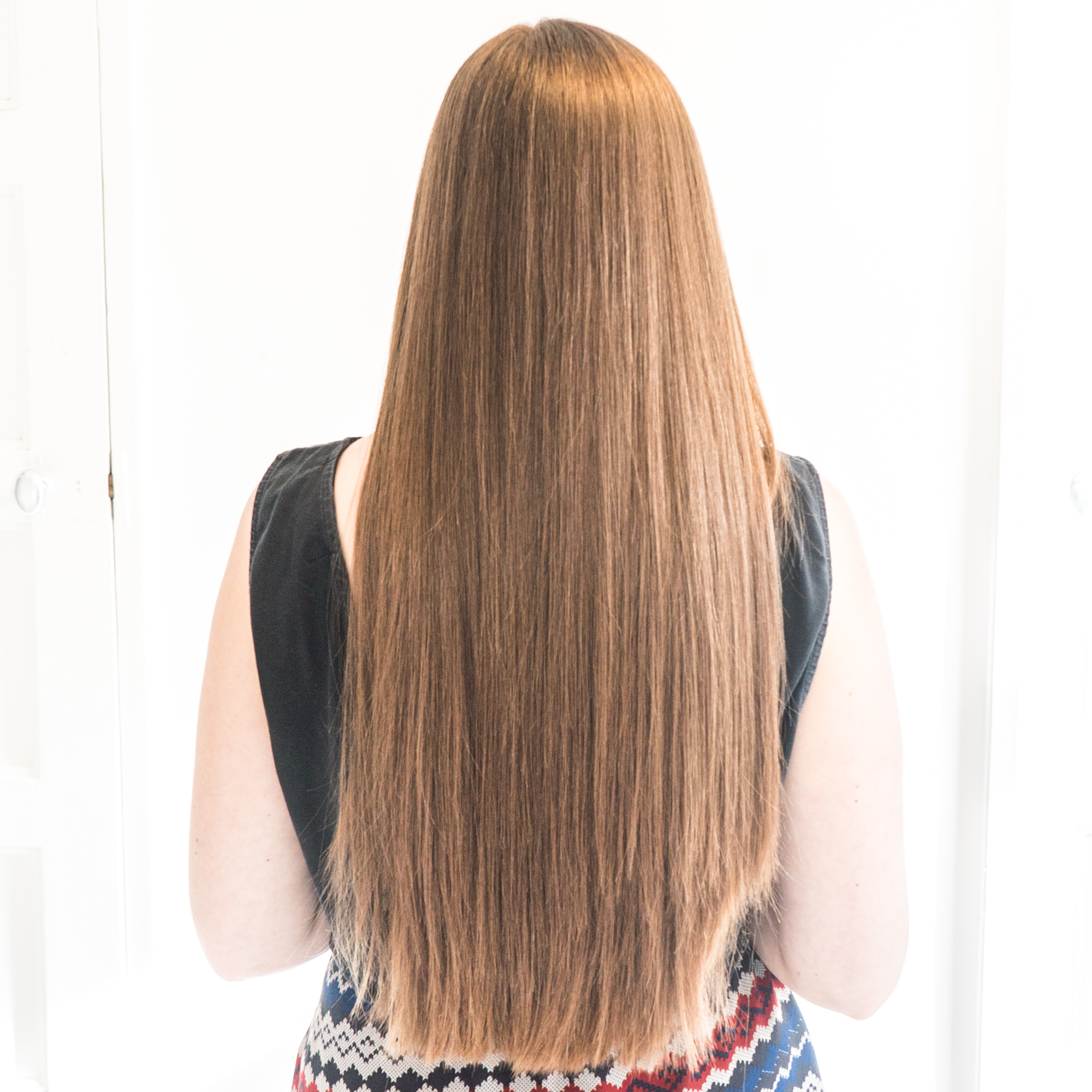Alopecia, hair loss, is common and can be particularly difficult for women to cope with. There are many causes for losing your hair, not just genetics. These include pregnancy, an excess of Vitamin A, lack of protein, anaemia, thyroid disease, autoimmune disorders, dramatic weight loss, over-processing your hair, stress and medications. It is estimated that 50% of women over 65 experience female-pattern baldness, which is thought to be inherited. There are many types of hair loss, and it can affect the old and the young.
With this being an increasing issue affecting women there are a variety of products and tips to combat hair loss in women. Try using the tips below to mask the effects, prevent your hair from thinning or to remedy the problem.

1. Styling
Avoid hairstyles that pull on the hairline such as tight ponytails and heavy braids. Swap to gentler elastics such as an invisibobble so that your hair can’t get tangled and pulled out when removed. Have a go at switching your parting for instant volume for flattened hair. Avoid heat damage by reducing the use of blow dryers and heat stylers. Use a targetted hair loss shampoo together with a gentle brush, avoiding harsh combs. Play with accessories such as hairbands, scarfs and hats that cover the scalp. Shorter haircuts are gentler on thin hair and can give more volume. Lastly, don’t underestimate the importance of the right cut and styling routine to boost your confidence.
2. Diet
Help revitalise thinning strands through foods high in vitamins and minerals. Hair flourishes on protein, iron, zinc, and vitamin B12 so be sure to include in your diet lean meats, spinach and kale, nuts, tofu beans, and fish, liquorice, bananas and eggs. Crash diets can cause hair loss so look for a change of lifestyle and a healthy diet rather than anything extreme.
3. Oils and massage
Essential oils have numerous natural benefits including regenerative, soothing, and balancing properties to improve the condition of the scalp and promote hair growth. Oils such as carrot seed, cypress, lavender, rosemary can help. Alternatively, argan oil, castor oil, aloe vera, coconut oil, jojoba oil, emu oil, and olive oil can help strengthen hair follicles. Add to your scalp and massage to take advantage of all the oils benefits. The simplest way to incorporate scalp massages into your routine is whilst showering. Massage with your fingertips in slow, gentle, circular motions. This motion helps for better blood circulation on the scalp, promoting hair regrowth. It also reduces stress and aids the penetration of any treatment shampoos.
4. Stress Relief
Sudden and chronic stress, depression and anxiety can halt hair growth and cause thinning. Going through a challenging experience may cause alopecia, but your hair should grow back. If you’re under constant pressure seek out aromatherapy and meditation techniques to try to alleviate your hair loss.
5. Treatments
Treatments can come in the form of medication from your doctor or supplements such as TRX2™ Molecular Hair Supplement. Cortisone shots are injected directly into the scalp to block the hormonal activity that induces hair thinning. Another treatment is hormone replacement therapy, an efficient method for women experiencing hair loss post-menopause. Readily available options include ultra-violet light laser treatments that reduce the inflammation in follicles that inhibits them from regenerating. Finally, the most expensive of procedures is hair transplantation. A painful, invasive surgical process that isn’t to be chosen lightly but offers long-lasting results
Do you have any tips for preventing or dealing with hair loss? Of course, if you experience sudden and excessive hair loss, talk with your doctor about other possibilities and check out Provillus reviews.
*sp

loved these tips, i have anaemia and eczema so my scalp is soo dry causing my hair to easily fall out so i’m definitely going to try some of these!